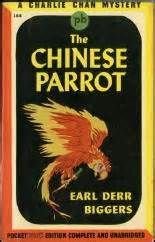LizzieMaine
Bartender
- Messages
- 34,140
- Location
- Where The Tourists Meet The Sea
I trust that you've seen Terry Zwigoff's 1995 film Crumb? The message that you get is that he grew up in a very dysfunctional family. Scary as it may seem, compared to his mother and his brothers Charles and Maxon, he's clearly the normal one. The other highlight of interest in that film is when then pre-teen daughter Sophie remarks regarding the décor and collectibles in the home, "Everything always has to be old." The film shows how Crumb and his wife Aline Kaminsky, growing ever disillusioned with America, end up moving to France.
I think his whole life is a cautionary lesson of how it's honestly possible for a sensitive soul to be driven over the edge by a combination of bad heredity and American consumer culture. The drugs he took in the sixties didn't help in that regard, but he was already well on that path before he started taking them. He's a truly damaged man, but between giving up drugs and getting away from the US, at least he's finally found peace.



